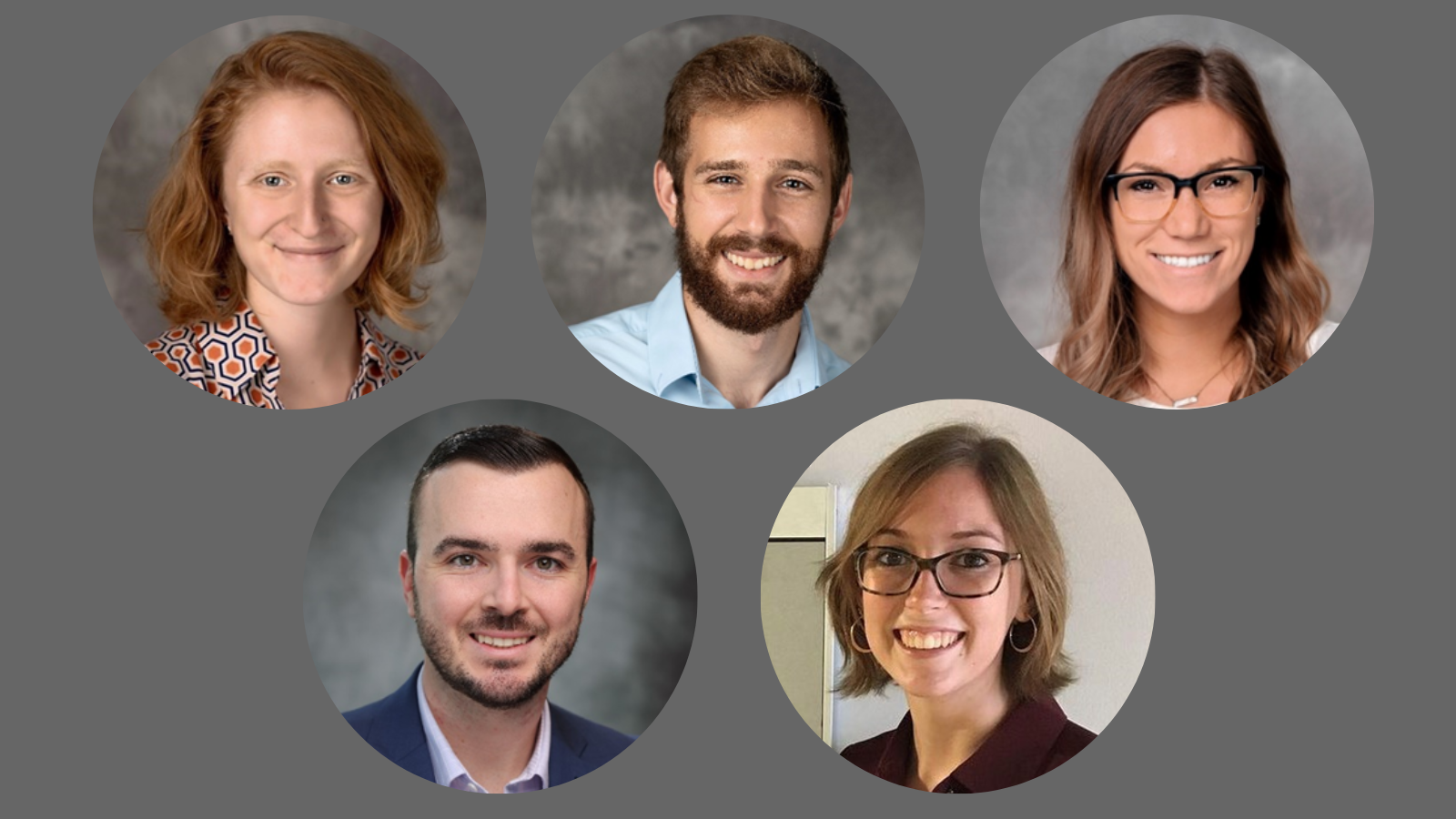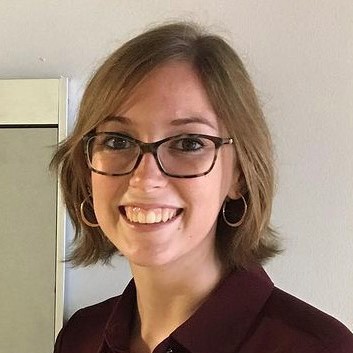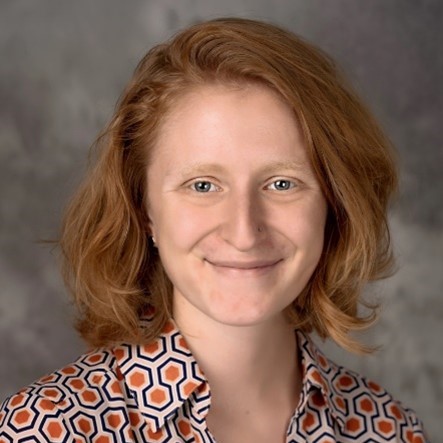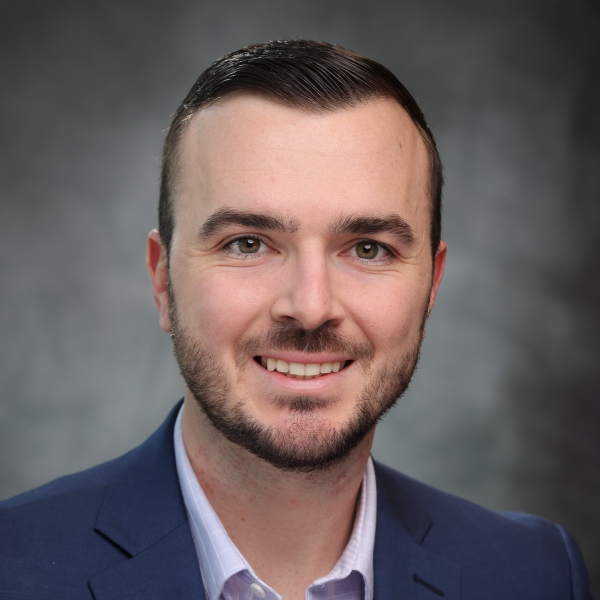Five Duke Engineering PhD Students Named Burroughs Wellcome Fund Fellows
Elizabeth Witherspoon
Fellowships support professional development for research in biological sciences, climate change and human health

Complex problems in biological sciences, climate change and human health require quantitative thinking, teamwork and creative problem solving. These skills are the foundation of an engineering education.
Thanks to a one-year pilot award program from the Burroughs Wellcome Fund (BWF), five PhD students in the Thomas Lord Department of Mechanical Engineering & Materials Science (MEMS) are receiving support to advance their research in these areas by providing $1,000 each for professional development, including conference travel, visits to collaborators and workshop registrations.
“Our goal is to expand the talent pool of engineers working in these areas by training interdisciplinary mechanical engineers and materials scientists and preparing them to contribute to these challenging problems,” said Christine Payne, director of graduate studies and professor in MEMS.
This aligns with the department’s goals, inspired by the Pratt School of Engineering’s 2039 strategic planning initiative, of addressing big questions and working in service to society, said Payne.
The range of research interests by these fellows spans computation and machine learning to accelerate biodegradable polymer design to power system stabilization for renewable energy generation, and more.
“BWF is excited to fund this pilot project with MEMS to provide professional development support to interdisciplinary graduate students who come from diverse backgrounds. Diversity, equity and inclusion are pillars of BWF’s mission, and we look forward to supporting these amazing students who are truly working on cutting-edge science at the scientific interface,” said Kelly Rose, the program officer with BWF that manages this award.
Meet the Burroughs Wellcome Fund Fellows
Jessica Lalonde
A third-year PhD student whose research focuses on using computation and machine learning to accelerate biodegradable polymer design by predicting degradation performance. Analysis of these polymers will improve plastic materials design for optimum degradation.
She earned her BS in materials science and engineering and her BA in biology from Case Western Reserve University in 2019. In addition to her research, she is active as a co-founding member and officer of the Duke student chapter of the Materials Research Society (MRS), a volunteer Bass Connections Fellow for sustainable reproductive health solutions and a bike mechanic at the Durham Bicycle Co-Op.
Advisor: Jennifer West and Stefan Zauscher
Ethan LoCicero
A fourth-year PhD candidate, whose research focuses on power system stabilization for renewable energy generation, as he explains in this two-minute video.
He plans to use the funds to visit the University of New Mexico this fall to work closely with collaborators, collect data and use the data to design new controllers capable of stabilizing power systems with distributed renewable energy generation. This work will be crucial to the transition to a sustainable energy future, said LoCicero.
He earned his BS in mechanical engineering at the University of Notre Dame in 2019. In addition to his research, he enjoys rock climbing and playing soccer.
Advisor: Leila Bridgeman
Concetta Morino
A third-year PhD candidate in the Duke Injury Biomechanics Laboratory. Morino’s research characterizes the biomechanical causes of chronic lower back pain and identifies specific lumbar injury biomarkers to improve diagnosis.
She earned her BS in mechanical engineering from The Ohio State University in 2019.
Outside of research, Morino has served as recruitment chair for the Duke MEMS PhD program, and co-founded a diversity, equity, inclusion and community program to mentor applicants through the PhD application process.
Advisor: Cameron Bass
Hunter Newman
A third-year PhD candidate whose research focuses on developing novel biomaterial-based technologies to improve bone disorders such as osteoporosis and fracture healing.
Newman said he plans to use the funds to purchase a “much needed new computer system.”
He earned his BS in biochemistry from Boston College in 2016 and MS in Biomedical Sciences from Tufts University School of Medicine in 2018.
In addition to his research, Newman has served as a Fellow in the Duke Office of Translation and Commercialization (OTC), where he assesses the commercial viability of Duke innovations.
Advisor: Shyni Varghese
 Amy Strong
Amy Strong
A first-year PhD student whose research focuses on designing controls for an autonomous robotic medical ultrasound system to scan highly deformable tissue, such as breast tissue, safely and effectively. She earned her BME and MS degrees in mechanical engineering at Auburn University.
Strong said the funding will enable her to attend the Military Health System Research Symposium in September, where she will present the poster, “Autonomous Ultrasound Scanning for Complex, Deformable Tissue.”
Outside of research, she enjoys reading, running and exploring Durham, Duke’s hometown.
Advisor: Leila Bridgeman




